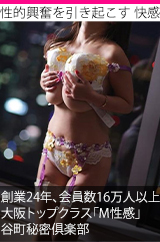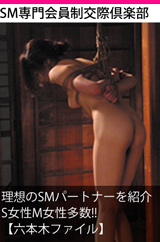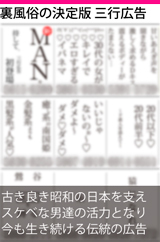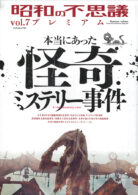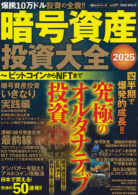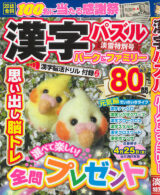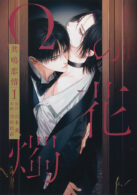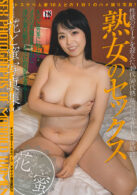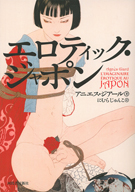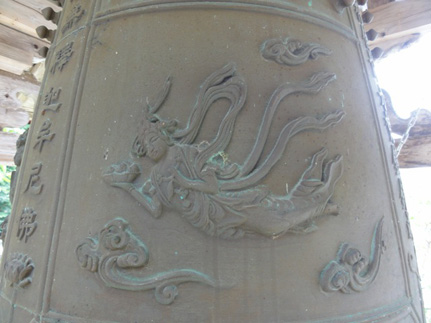
Erotical Parade Japan
フランス人ジャーナリストのエロティック比較文化論
気鋭の女性フランス人カウンターカルチャー専門ジャーナリスト、アニエス・ジアールが、「奇妙で豊穣な性文化」について日本の様々な文化的側面から掘り下げていくユニークな比較文化論。今回は世界各地で伝えられる羽衣伝説の考察を軸にして、隠されたものの中に潜む大切な何かへと思索の糸を伸ばしていきます。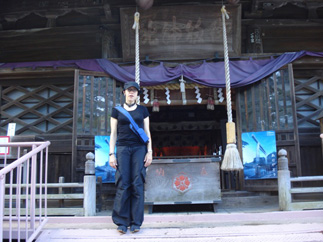
日本の多神教は神道と呼ばれるが、たくさんの種類の祭儀があり、神と通じるには多くの方法があったようだ。神道はそれらの近代的なコンセプトにすぎない。もちろん"ある一つの神道"を語ったほうが話は簡単なのだが、おそらく近年まで日本人には多種多様の信仰があり、それらには聖地はないという共通点しかなかった。多神教信者にとっては、自然こそが唯一の聖地である。だから美しい場所を見つけ、そこに適当な石を置き、ここに神がいる、とさえ言えばそれでいい。神とは美である、神とはあなた自身と美である。神とは美の渦中にあるあなた自身である。京都造形芸術大学での学会でよく出会った美学哲学者の武田好史は、私に、最初の鳥居は鳥の餌台のようなものだったのではないかと言っていた。鳥の群れが餌をついばみに飛来し、あたりに翼をばたつかせる……おそらくそれは美しいものだっただろう。これは私に羽衣を思い出させた。
まあうれしい、うれしい。羽衣を取り戻して、私はまた天上に帰ることができます
お礼に、この世に来た記念の舞を踊りましょう
人の皇女にぴったりでしょう
舞の調べが月の塔へと返してくれます
お礼に、この世に来た記念の舞を踊りましょう
人の皇女にぴったりでしょう
舞の調べが月の塔へと返してくれます
(参照元 : Hagoromo)
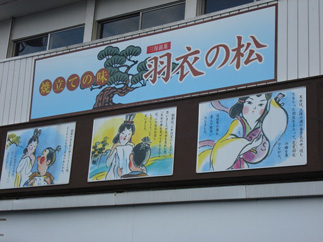
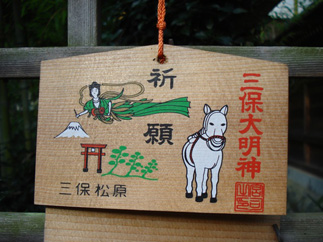
だれでも世界中の羽衣伝説を知っているだろう。ヨーロッパでも同様の物語はたくさんある。白鳥が空からやってきて、羽毛のマントを脱ぐと美しい乙女になり、綺麗な場所で水浴びをしていた。男は美しい娘たちの一人をそばにおいておきたくなった。男が羽毛のマントを盗むと、天女は自分の帰るべき天上に戻れなくなってしまった。彼女は男と結婚し、子供を産んだ。ある日彼女は隠されていた羽毛のマントをみつけ、天に帰ってしまった……。多神教の物語であり、つねに美を"所有"したいと願う人間の話である。男は美を自分のものにしたかった。自然の主となりたかった。羽衣は「鳥の羽根を切ってしまっては、鳥は飛べず、その美は損なわれてしまう」という説話なのだ。
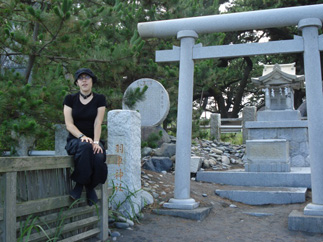
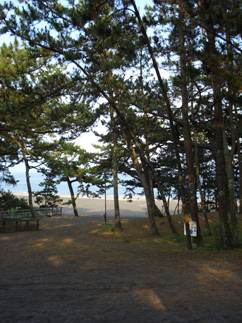
日本では"見る"という動詞は "性的関係を持つ""所有する""獲得する"ことを強く連想させる。だからこそ多くの愛の物語は"見るな、のタブー"、"私を見るなというタブー"に関係しているのだ。イザナミは死後、夫に"私を見るな"と言った。それなのに夫は黄泉で彼女を見てしまう、そしてイザナギは妻を永遠に失ってしまう。彼女の美は失われてしまったのだ。武田好史によると、谷崎が『春琴抄』を書いた時、彼は日本人の考える"愛"について深い話を書こうとしていたのだという。美しい盲目の音楽家の話で、彼女の世話をする男は、彼女に恋をし、彼女の奴隷となる。しかし彼女は彼を冷たくあしらう。性的関係を持ったあとでも、彼女が怪我を負い、醜くなるまで、春琴は彼を知らない者のように扱う。彼女の恋人は自身の目に針をついて盲目になり、彼女の真の“美”だけを見ようとする。そうして彼らは本当の恋人同士になった。美とは目ではなく、心で観るべきものだ。目は解釈しようとする。レイプしようとする。謎を解き明かそうとしてしまうものなのだ。
隠され、黙秘され、見えず、理解を超えたところに留め置かれるべきものがある。なぜなら、そうすることがそのものの力や美しさを感じとる唯一の方法だからだ。愛は神にとても近いものだ。日本の愛は"恋"である。恋は頼み、乞うものだ。雨を乞うのが雨乞いだ。命を乞い、美しいことが起こるよう乞うものだ。しかしそれを見たければ盲目にならねばならない。だから能役者は能面をつけるのだろうか。彼らの視界は不自由になるが、それで世界を見通せるようになる。盲人は視覚以外の感覚を使う、触り、匂い、聞くことでより敏感になる。盲人は性感も強い。多神教の文化では、"見るな"に関連する物語は、夢や悪夢にでてくるようなことばかりだ。鳥肌がたち、脳が開かれていくような……。人は、このような未知なるものとの遭遇を望んでいる。それを待ち望み、目を閉じるのだ。
文=アニエス・ジアール
翻訳=前田マナ
翻訳=前田マナ

BAUDRILLARD, MIRUNA TABOO AND HAGOROMO
The french philosopher, Baudrillard, wrote (in Les Stratégies Fatales): "Seduction is pagan, love is christian. Jesus Christ is the one who started wanting to love and be loved. Because of him, religion became suffering, affect and blackmail. The ancient myths and cults did not care about love. They were only about ceremony and metamorphosis. The world was something made of signs, symbols and apparence. There was no reality. Men used to walk in the nature listening to what trees and animals had to tell them. Nature was talking, full of spirits, mysterious powers, gods or dead, whatever you call that. And they were sometimes being seduced by these creatures or by the shapes of hills and mountains. This is why some mountains like Tsukuba became places where maidens could meet young men in order to exchange poems (uta-gaki) and to have intercourse… Sometimes maried people would also come and join these orgies, in order to make love to other people, husband and wive all alike. There are some poems about it in the Man'yoshû. It was freedom. Babies born from these events were called "baby of the god".
Paganism in Japan has been called shintô, but it seems there were many kind of cults, many different ways of getting in touch with the divine. Shintô is just a modern concept. It's easier to talk about "one shintô religion" but, until recent times, japanese people had probably many different beliefs… with only one thing in common : no sanctuary. For pagan people, nature is the only sanctuary. You just have to find a beautiful place, and put some stones there to say : here is God. God is Beauty. God is you and the beauty. God is you in the middle of beauty. Yoshifumi Takeda, Philosopher of esthetic who sometimes gives conference at the Kyoto University of Art and Design told me that the first torii probably looked like pilars with food for the bird. Clouds of bird came to eat, their wings beating in the air… This was probably beautiful. It made me think about Hagoromo.
"I am happy, happy. Now i shall have wings and mount the sky again
and for thanksgiving I beaqueath
A dance of remembrance to the world,
fit for the princes of men :
the dance-tune that makes to turner
the towers of the moon".
http://etext.virginia.edu/japanese/noh/WalHago.html
You can find the story of Hagoromo in all the world. In Europe, we have many many similar stories : swans come from the sky, they put off their feather mantle, they become beautiful maiden and they enjoy bathing in a beautiful place. But a man wants to keep one of these girls for him. He steals the feather mantle and the maiden can not come back to the sky where she belongs. She marries the man and has babies. Until, one day, she discovers the hidden feather robe and goes back to heaven… It's a pagan story. It's a story about human being : human being always wants to "possess" beauty. He wants to keep it for himself. He wants to be the master of nature. Hagoromo is a lesson : If you cut the feathers of a bird, bird can not fly and beauty disappears.
In Japan the verb "to see" is stronly associated with "to have sex", "to possess", "to get". This is why most of the love stories are related to "miruna no taboo", the "don't look at me taboo". Izanagi told her husband "don"t look at me" after she died. He did look at her and he lost her forever. She lost her beauty. "When Tanizaki wrote the story of Shunkin, he wrote something very deep about how japanese people consider love : it's the story of a beautiful blind musician. The boy who takes care of her falls in love with her and becomes her slave. She refuses to be kind to him. She always treat him like a stranger, even if they have sexual relationship. Until the day she is disfigured. She becomes ugly. And her lover inserts a needle in his eyes, in order to become blind and see her "true" beauty. Then, they become real lovers. Beauty is something you must look at with your heart, not your eyes. Eyes want to understand. Eyes want to rape. Eyes want to penetrate inside the mysteries…
There are things that must remain hidden, untold, unseen or beyond understanding because it's the only way to feel their power and their beauty. Love is something very close to divine. Love in Japan is "koi". Koi is "asking", "begging". Asking for rain : amagoi. Asking for life. Asking for something beautiful to happen. You must become blind to be able to watch it. This is probably why nô actors wear masks. They become blind so that their eyes can go through the worlds. Blind people feel through other senses, they touch, they smell, they hear, they become much more "aware". Blind people are also more sexually powerful. In pagan cultures, all the stories related to "don't look at me" talk about something we expect in our dreams and nightmares, something so powerful that our skin shivers and our brain opens to it… We expect this meeting with something unknown. We wait for it. We close our eyes.
text=AGNES GIARD
アニエス・ジアール最新刊『エロティック・ジャポン』(河出書房新社)発売!!
『エロティック・ジャポン』
著者: アニエス・ジアール
翻訳: にむらじゅんこ
発売: 2010年12月22日
定価: 3,990円(本体3,800円)
ISBN: 978-4-309-24534-8
出版社:河出書房新社
内容:あまりに奇妙で、あまりに豊饒な日本のエロス的イメージ! 気鋭のフランス人女性ジャーナリストが論じる大胆な日本のエロティック・カルチャー……ロリコン、人形、制服フェチ、コスプレ、メイドカフェ、援助交際、風俗産業……現代アートや浮世絵、風俗雑誌など、約300点にのぼる豊富な図版を収録!
著者: アニエス・ジアール
翻訳: にむらじゅんこ
発売: 2010年12月22日
定価: 3,990円(本体3,800円)
ISBN: 978-4-309-24534-8
出版社:河出書房新社
内容:あまりに奇妙で、あまりに豊饒な日本のエロス的イメージ! 気鋭のフランス人女性ジャーナリストが論じる大胆な日本のエロティック・カルチャー……ロリコン、人形、制服フェチ、コスプレ、メイドカフェ、援助交際、風俗産業……現代アートや浮世絵、風俗雑誌など、約300点にのぼる豊富な図版を収録!
関連記事
欧米フェティッシュ・ジャーナル Fetish Journal
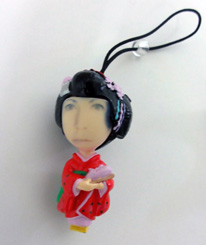
アニエス・ジアール - AGNES GIARD - 1969年生まれ。仏リベラシオン紙のジャーナリストであり、主にカウンターカルチャーや性に関する記事の専門家。日本のエロティシズムについて言及した著作 『エロティック・ジャポン』(仮)、『図解 ビザール・セックス全書』(仮)がそれぞれ河出書房新社と作品社より近日刊行予定。現在は京都の関西日仏交流会館ヴィラ九条山に滞在しており、日本における様々な恋愛物語についての本を準備中。

前田マナ 英国ランカスター大学演劇学部修士修了。専門は現代演劇やコンテンポラリーダンス。
ライターとしてウェブや雑誌等に雑文なども寄稿。
11.05.12更新 |
WEBスナイパー
>
エロティカルパレード・ジャポン!!
| |
| |


